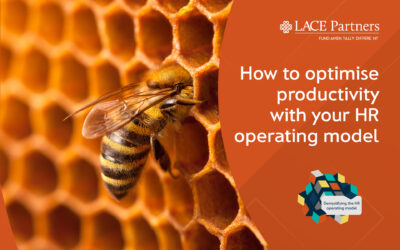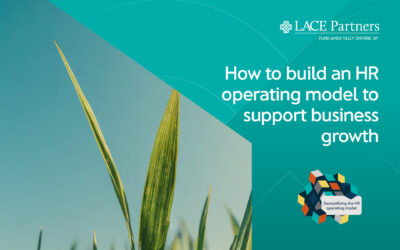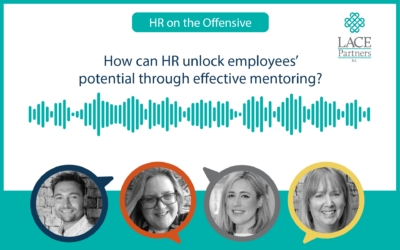![]() At LACE, we constantly question the status quo and seek out ways to shake it up. This led us to launch our latest campaign on redefining workplace productivity, making it fit for purpose in a post-pandemic world. As part of this campaign, we recently hosted a networking dinner with our very own Tim Ringo talking about his book Solving the Productivity Puzzle. Today’s blog is an overview of some of the key discussions we had with the Chief People Officer’s (CPO’s) present in the room, as we explored why we need to redefine productivity for the 21st Century.
At LACE, we constantly question the status quo and seek out ways to shake it up. This led us to launch our latest campaign on redefining workplace productivity, making it fit for purpose in a post-pandemic world. As part of this campaign, we recently hosted a networking dinner with our very own Tim Ringo talking about his book Solving the Productivity Puzzle. Today’s blog is an overview of some of the key discussions we had with the Chief People Officer’s (CPO’s) present in the room, as we explored why we need to redefine productivity for the 21st Century.
Productivity and growth – two words we’re hearing all over the place, particularly since the global pandemic and associated shifts in the world of work.
Since 2010, so the story goes, UK productivity has been flailing in the wake of the global financial crisis of 2008/2009. The stats back this up – they show that the UK’s productivity increased by around 2.3% every year between 1974 and 2008. This growth fell to around 0.5% between 2008 and 2020. And then COVD-19 hit.
COVID-19 and productivity levels
The pandemic forced business to change at a breakneck speed to continue creating value. New ways of working emerged overnight, with remote and hybrid work patterns taking centre stage.
Leadership behaviour also changed, in many instances becoming more empathetic, leading to holistic management styles contributing to maintaining a presence in an uncertain world. All of this led to a surprising uptick in productivity, suggesting that there are totally different ways to measure and even define it.
Since the world of work drifted largely back to pre-pandemic methods, there is evidence that productivity and growth in the UK is on the slide again. This is despite the revolutionary technological advancements that surround us – how can productivity be falling when all the potential for growth is there? This is exactly what we discussed at the forum.
Shifting the productivity definition dial
Economic productivity has long been defined as the rate at which people work in terms of input and output. The thing is, when this definition was coined, 80% of people were working in some form of tangible production. Therefore, measuring how much they could make in the timespan they were working made sense.
Today, this has totally flipped. Only around 20% of the workforce are making things, while the rest of us are engaged in more esoteric and intangible work – ideas, creating, finding new ways of doing this, project management, working with the new generation of tech to refine and improve.
In other words, the classic definition of productivity just doesn’t work anymore. It totally skips the entirety of the innovation/knowledge economy. Our new definition, courtesy of Tim Ringo is: “…getting stuff done that measurably improves the economic and human interests of organisations and society at large.”
Challenges and roadblocks
Productivity, then, is a broad term often used by different people to mean different things. Forum attendees identified various sub-categories for debate and discussion, many of which focus on the differing understanding of productivity across different sectors, between blue- and white-collar workers and at an individual level.
For example, inequality exists among sectors but also across businesses – some head office employees may be able to work in a more flexible way than those on the factory or shop floor. Does this mean the potential of the latter is stifled or that growth means finding bespoke solutions for different groups?
The role of the business leader
Henry Ford’s name came up in our discussion as a gamechanger for employee productivity. While no one is suggesting Ford was a man of the people, he did recognise that those who are paid a fair wage and are not overworked end up more productive.
He introduced the concept of eight-hour work days, higher wages and a third shift. And while Ford was very much about moving the chess pieces to allow productivity and therefore income to soar, rather than worried about his employees’ mental health and wellbeing, lessons can be learned.
The biggest lesson is that business leaders can and should pan out their viewpoint to a macro level to find the key changes that will contribute towards encouraging employees to up their productivity without sacrificing their wellbeing.
The role of the individual
There was much discussion surrounding the individual’s approach to productivity. People need motivation. They need to want to get the most out of their time at work. This means they need the kind of environment and flexibility from management that acknowledges their rights to life outside of work as well as inside.
In some cases, productivity depends on the right people being in the right role at the right time. For example, a people manager will be measured on their ability to be productive through their team, while a technical manager will be measured on their output.
The role of technology
Another huge topic of discussion was the impact of generative AI, such as ChatGPT, on productivity. On the one hand, the entire point of AI and automation is to massively speed up productivity in some areas, but as yet businesses are not seeing the benefits.
Generative AI is in its early adoption stage, and while there may be a lot of noise about what it could do in the future, for now it is nowhere near ready to become part of the productivity mix at the majority of businesses.
Its role in recruitment formed the basis of an interesting discussion on its current usefulness. For example, attendees spoke about incidents where ChatGPT had created references for a candidate that didn’t exist in real life and where an entire CV had been written by the programme.
The ins and outs of the morality of using ChatGPT in this way was discussed, with obvious negatives balanced out by unexpected positives. The efficiency of data analysis would be a boon for specialist recruiters, while people who struggle with some traditional skills may benefit from the writing assistance.
Balancing productivity with humanity
The final discussion point is perhaps the most important. There is a real fear that a consistent focus on productivity precludes the humanity of being able to connect with colleagues and bosses on a non-transactional level.
Losing this all important connection leads to a lack of purpose and drive, which actually damages productivity in the end anyway. It’s a vicious circle that serves no-one.
This lack of connectivity can also negatively affect mental health. As human beings, we need connections in order to learn, grow and develop. If productivity measurements are actually impeding this connectivity then there are strong arguments for changing our approach.
If you’d like to join the productivity debate at our next forum, fill in the form below and we’ll be in touch.






